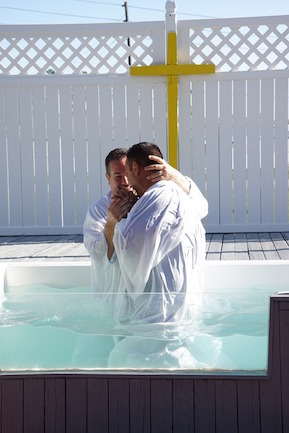HOW TO BE THANKFUL FOR YOUR MESSED-UP CHURCH by William Boekestein for Core Christianity
If you were asked to write a note of thanksgiving about your church, similar to those with which Paul customarily began his letters to the churches, could you do it? Beyond the building, the location, the familiarity, and the friends, what about your church makes you thankful?
Without a habit of verbalizing gratitude, believers can easily develop a critical attitude toward the church. By contrast, thankfulness can set the tone for contentment and sacrificial participation with God’s people. For this reason, Paul wrote to the churches things like, “I thank my God upon every remembrance of you, always in every prayer of mine making request for you all with joy” (Phil. 1:3–4). How can Paul be thankful for churches that, like ours, have significant problems?
The key to thankfulness in the church is a recognition that despite our massive faults, God is at work among his people. Here are three ways that God’s work can nurture gratitude in the church.
Support Our Site

Now is your chance to support Gospel News Network.
We love helping others and believe that’s one of the reasons we are chosen as Ambassadors of the Kingdom, to serve God’s children. We look to the Greatest Commandment as our Powering force.
We Can Thank God for Gospel Fellowship
Paul thanked God for believers’ “fellowship in the gospel” (v. 5). The word for fellowship—koinonia—elsewhere translated as “partnership,” implies closeness and intimacy. The Philippians hadn’t just heard the gospel or even just believed the gospel; they had experienced profound communion with the essence of the good news: By his perfect life and sacrificial death Jesus has demonstrated a righteousness that now bears fruit in those who believe in him (Cf. v. 11). Nothing but the gospel’s reconciling power (2 Cor. 5:17–19) is strong enough to bind together people of different gender, age, ethnicity, education, personality, and socioeconomic status. As D.A. Carson has said, the gospel promotes “a precious God-centeredness” that we share with other believers.
Because of God’s saving work, his people also become promoters of the gospel—another reason to give thanks! The word “gospel” in Philippians usually denotes the activity of gospel ministry. In other words, Christian fellowship in the gospel is a tangible partnership, almost in a business sense, with those who labor in the ministry. God’s redeemed people become joint-partakers in grace and “in the defense and confirmation of the gospel” (v. 7). In this sense Paul can say, “From the first day until now” (v. 5) the church has promoted the gospel through conversation, prayer, and financial contributions.




